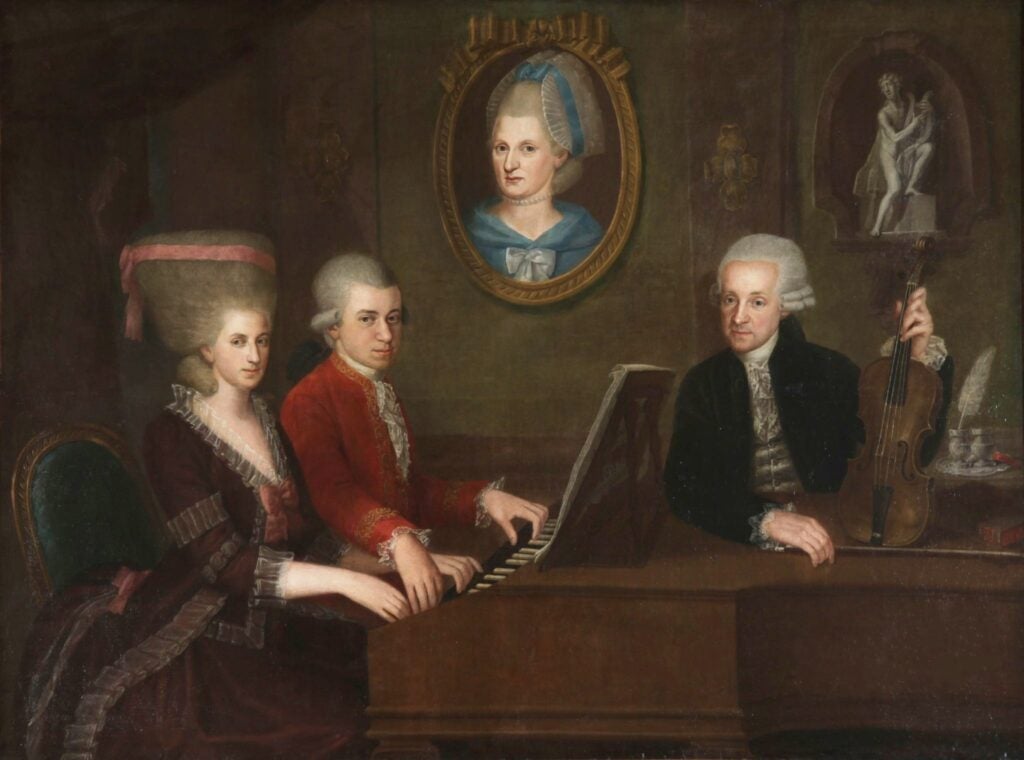Join Wolfgang Amadeus Mozart in 1777 as he waits, in an aristocrat’s antechamber in Munich, for a conversation that could change his life. What did it mean to wait in the past? Who waited? How did it shape society and culture, and how did it define social interactions?

Imagine Wolfgang Amadeus Mozart, one of the most famous composers of all time, waiting for a job interview in 1777. How would Mozart pass the time? Who would he talk to? What would his surroundings look like? How would he handle the wait?
In this episode, Helmut Puff reflects on waiting with Mozart in Duke Max Joseph’s antechamber in Munich. Puff has written about the history of waiting, and he encourages us to think more deeply about what waiting means, who waits, how it shapes our society and culture, and how it defines our social interactions.
View the full episode transcript.
Historian Biography
Helmut Puff is the Elizabeth L. Eisenstein Collegiate Professor of History and Germanic Languages at the University of Michigan. His most recent book, The Antechamber: Toward a History of Waiting, published by Stanford University Press, turns to time, space, and encounters, tracing the history of waiting in early modern Europe.
Production Credits
Episode Producer: Helmut Puff
Host and Season Producer: Paige Newhouse
Executive Producer: Gregory Parker
Editorial Board: Amir Marshi, Enrieth Martinez Palacios, Talitha Pam, Cheyenne Pettit, Sophie Wunderlich
Voice Actors: Himani Boompally, W. Forrest Holden, Lucas Koutsoukos-Chalhoub, and Jackie Lauer
Sounds:
Pierre Grandjean, “Toupie1.mp3” (Freesound, Creative Commons 1.0 Deed).
NachtmarTV, “Walking on hard floor with boots” (Freesound, Creative Commons 4.0 Deed).
fauxpress, “Old Scots Clock – Ring the Hour – Five O’clock” (Freesound, Creative Commons 1.0 Deed).
SFXAFRIK, “Doors, wooden door, long creak, open, close office, Wooden Door, Office Door Knock” (Freesound, Creative Commons 4.0 Deed) .
Music:
Wolfgang Amadeus Mozart, “String Quartet No. 3 in G Major: 3. Tempo di Minuetto,” K. 156 (134B), Lynne Publishing.
Wolfgang Amadeus Mozart, “Fantasia No. 3 in D minor,” K. 397, German Records.
Wolfgang Amadeus Mozart, The Marriage of Figaro: “Overture,” K. 492, Symphonik.
Share your thoughts about Reverb Effect by messaging reverb.effect@umich.edu.
© 2023 Regents of the University of Michigan
Author
Helmut Puff and Paige Newhouse
Contributor
Gregory Parker
Department or Unit
History
Publish Date
2023
Format
Podcast
Funding Source
